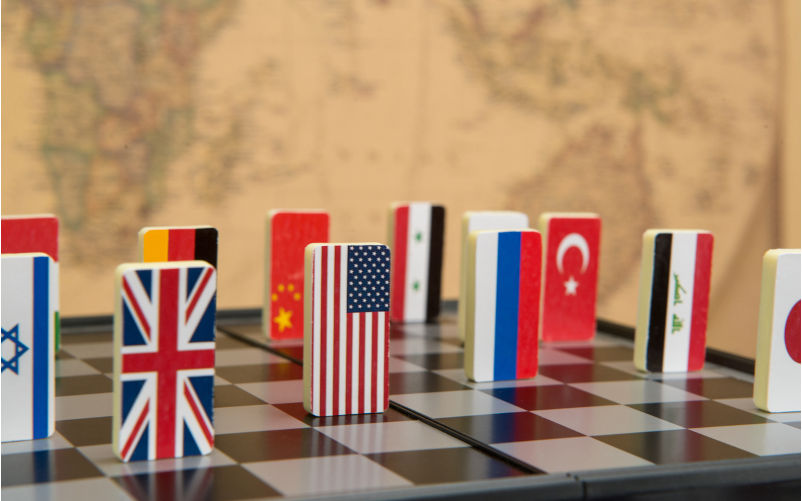The new Dark Age
February 19, 2024
Sometimes one event encapsulates the zeitgeist. Alexei Navalnys death from what are almost certainly unnatural causes is one such moment. One of the most heroic figures of our time appears to have been eliminated by one of the most despicable and loathsome. The only thing that is really surprising given Vladimir Putins track record is the brazenness of his apparent murder.
While Putin may have perfected the dark arts of political repression he is hardly alone in his enthusiasm for silencing political opponents. One of Putins key allies and toadies in Belarus has driven opposition leader Sviatlana Tsikhanouskaya into exile, from where she would be unwise to return. Alexander Lukashenko is not the only European leader taking lessons from Putin, however.
Even more alarmingly, states within the European Union are also titling toward totalitarianism. Hungarys Victor Orban has become one of the leading figures in what The Economist describes as the spread of national conservatism. But he is far from alone. The UKs Boris Johnson, the Netherlands Geert Wilders, Frances Maine Le Pen and Italys Giorgia Meloni all demonstrate that radical forms of nationalism, unambiguously illiberal values and intolerance can be a route to electoral success.
Even where more progressive figures defeat nationalists in democratic elections, overturning the grip of cronies and ideological fellow travellers can be difficult. Former European Council President Donald Tusks recent electoral victory in Poland may have been widely welcomed in Brussels, but trying to dismantle institutionalised forms of corruption and anti-democratic politics is no easy taskespecially when President Andrzej Duda remains implacably opposed to reforms that undermine the former Law and Justice (PiS) government.
Tusks efforts to restore some semblance of independence and legitimacy to a media that had been captured by PiS was described as illegal and anarchic by Duda. Polands highest court, full of judges appointed by PiS while in office, ruled that Tusks proposed reforms of state media were unconstitutional. To overcome the stranglehold that political appointments have on the make-up of the judiciary means giving the appointment process back to judges, which could be Catch 22.
The good news, such as it is, may be that Poland is not the most consequential country in the world and its problems will affect them more than anyone else. Much the same might be said about the EU, perhaps, as it struggles to develop collective responses to the most unforgiving geopolitical problems of the era, some of which are in their own backyard, of course.
The same cannot be said about the United States, which, for better or worse, definitely is one of the most consequential countries in the world. It is no longer controversial to suggest that the authority and influence of the US is being steadily undermined by toxic domestic political polarisation, and an inability to decide what Americas national interest actually looks like in the twenty-first century.
And yet, one man does think he knows what is in the interest of the United States and it is increasingly possible that he will soon be back in the White House. Not only does this make it potentially possible for Donald Trump to pardon himself and his cronies, but he can also give comfort to the likes of Putin, Xi Jinping, Kim Jong Un, Narendra Modi, Recep Erdogan, Benjamin Netanyahu and a host of other would-be strong men leaders.
With the possible exception of Sheikh Hasina in Bangladesh, the worlds repressive, autocratic and increasingly authoritarian political class really is a boys club. It is also one that is increasingly capable of learning useful lessons about the technology of totalitarianism from successful counterparts. Trump certainly saw the value of stacking Americas judicial system with political soulmates, for example. His domination of the Republican Party is further undermining the foundations of democracy, too.
The parallels with the fall of Rome and the descent into the first Dark Age may be a bit of a stretch, but as Mark Twain famously pointed out, history may not repeat itself, but it often rhymes. The fact that we may have been here before, may not be enough to save us. After all, one of the big lessons of history is that we dont learn anything from history. Trump doesnt even know anything about Americas history, let alone the worlds.
When the proverbial light on the hill is dimming, and the brightest and best are being brutalised and imprisoned, its a bit difficult to be overly optimistic about a future in which despots can literally get away with murder. Even now rallying the fabled international community is a bit difficult, not least because the likes of Antonio Gutteres and Ursula von der Leyen lack the tools of the nationalists. If Trump returns, it will be impossible.

